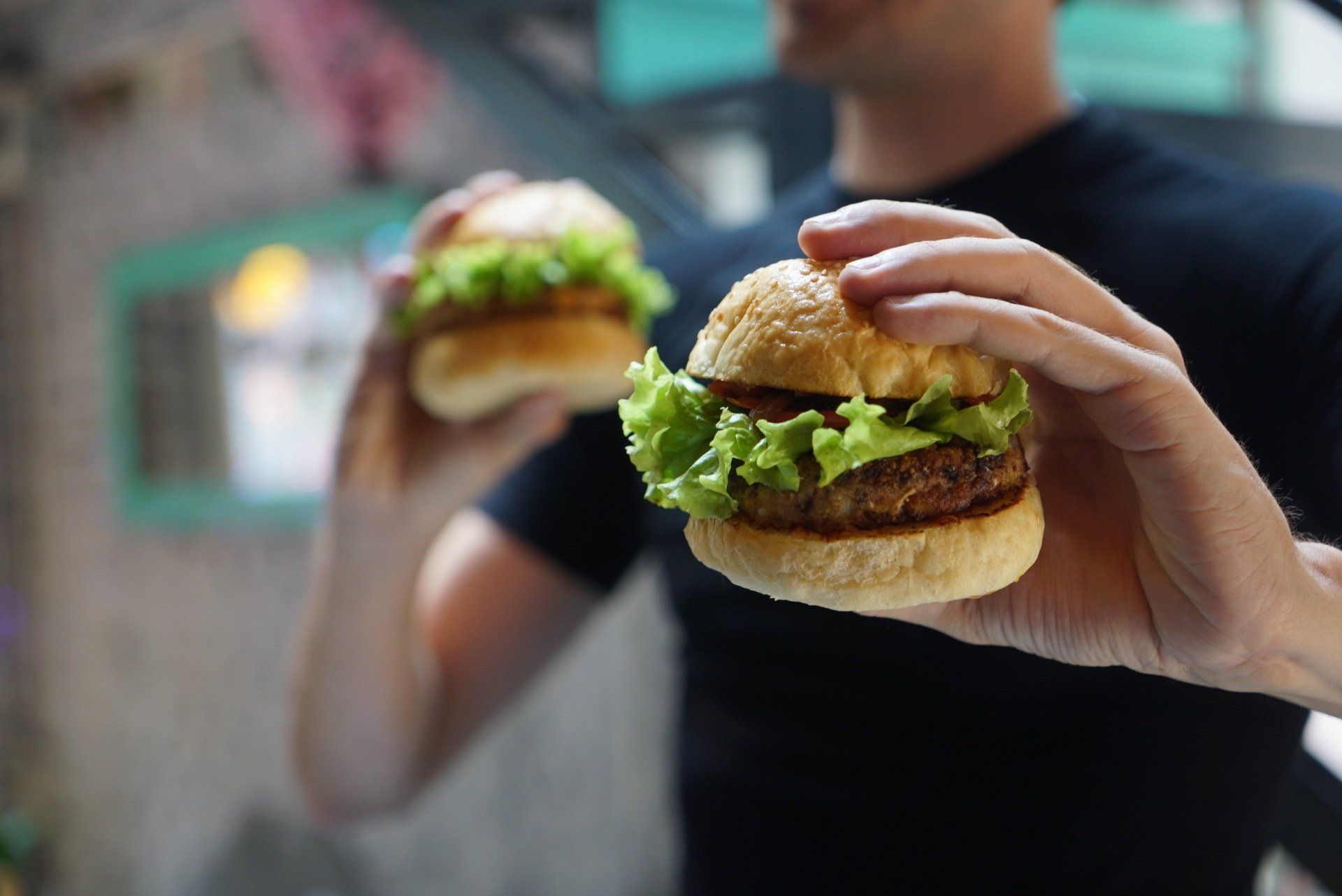Dieting Is Not The Best Way To Lose Weight
In fact, it's the worst.
Dieting doesn't work. Every systematic review on the effectiveness of dieting shows the same thing: initial weight loss followed by weight gain. At the end of 12 months almost nobody who diets keeps the weight off.
Yet despite the overwhelming evidence that diets don't work, we live in a culture that glorifies dieting. Sociologists have labeled this as "diet culture."
Diet culture is the harmful belief that a person's worth is based on their appearance and that controlling one's weight through dieting is normal. This way of thinking also leads to people seeing certain foods as good or bad, and believing that they must "earn" food through exercise or other means. This can result in poor self-image, negative self-talk, and the harmful comparison of thinness with worthiness.
Diet culture teaches people that their value lies in their appearance and that they need to diet to be normal. This way of thinking causes people to see some foods as good and others as bad. It also leads to people believing that they have to "earn" food through exercise or other means. This can create a poor self-image, negative self-talk, and the harmful comparison of thinness with worthiness. People who accept diet culture may also have an all-or-nothing mentality.
Diet culture often leads to unhealthy eating habits. This is because people focus more on eating low-calorie foods and less on nutrition. Diet culture can also make people view exercise as a way to "burn off" bad foods or as a way to earn food.
#1 NON-DIET APPROACH TO WEIGHT LOSS
#2 NON-DIET APPROACH TO WEIGHT LOSS
#3 NON-DIET APPROACH TO WEIGHT LOSS
The Anti-Diet Movement
Diet culture is one factor that contributes to disordered eating habits. This generally occurs from a lack of focus on nutrition while prioritizing low-calorie foods. It can also affect how someone views exercise since activity can be viewed as a way to work off so-called bad foods or used as a way to earn food.
Food is more than just fuel for our bodies. It is also a social and cultural part of our lives. Focusing solely on food as fuel (or as moral choices good v. bad) can isolate us from enjoying food as a deeper, more meaningful part of our lives.
This is often seen after major holidays when advertisements and articles push for detoxes or cleanses to "reset" or purge our bodies of "bad" food choices. Not only are these practices unscientific and potentially dangerous, but they also reinforce the idea that enjoying food must come with a consequence.
Labeling foods as "good" or "bad" can lead to disordered eating habits like orthorexia, which is characterized by an obsessive focus on healthy eating. People with orthorexia often rigidly restrict their diets in order to consume only what they believe to be healthy foods. This can lead to interference with everyday life, including social and emotional difficulties.
Examples of orthorexia include avoiding gluten when you do not have an intolerance or allergy, extreme versions of veganism, extreme low-fat or low-carbohydrate diets, detoxes, cleanses, and avoiding all GMOs or non-organic foods.
It's time to break free from diet culture. Our worthiness should not be contingent on our weight or appearance. We are worthy simply because we exist. And we deserve to treat our bodies with respect and love, no matter what size or shape they are.
Examples of Diet Culture
Here are some examples in bullet points. Later we'll get more detailed:
- Labeling foods as good or bad.
- Exercising to “burn off” a specific amount of calories or to “earn a treat.”
- Limiting or avoiding entire food groups for being “bad” (e.g., carbohydrates, dairy, sugar).
- Feeling guilt or shame for eating.
- Attempting to suppress your appetite with caffeine, nicotine, skinny teas, or water.
- Avoiding certain social situations to avoid eating.
- Feeling unworthy or unattractive due to your body.
- Weighing yourself and changing your behaviors based on the number on the scale.
- Worshipping thinness and weight loss.
- Assuming that your body is responsible for good or bad things happening.
- Engaging in fat shaming or body shaming behaviors or talk.
- Feeling envious of others for their weight or perceived self-control.
Labelling foods as 'good' or 'bad':
Diet culture often leads us to label certain foods as 'good' or 'bad', based on their nutritional value. This can lead to feelings of guilt or shame if we eat 'bad' foods, and can also make us more likely to overeat 'good' foods in an attempt to make up for the 'bad' ones.
Exercising to 'burn off' calories:
Another common example of diet culture is exercising purely to burn off calories, rather than for our overall health and wellbeing. This can create a negative relationship with exercise, and can also lead to over-exercising which can be detrimental to our health.
Limiting or avoiding entire food groups:
Many people who buy into diet culture also limit or avoid entire food groups, such as carbohydrates, dairy, or sugar. This can lead to nutrient deficiencies and can also make social situations difficult, as we may avoid certain events where these foods will be served.
Feeling guilt or shame for eating:
Another common symptom of diet culture is feeling guilty or ashamed after eating. This can be due to the aforementioned labels of 'good' and 'bad' foods, or it may be because we feel we have overeaten or eaten 'too much' of a particular food. This can create a negative relationship with food and our bodies, and can lead to disordered eating behaviours.
Attempting to suppress your appetite:
Many people who buy into diet culture also try to suppress their appetites, often using methods such as caffeine, nicotine, skinny teas, or water. This can be harmful to our health, and can also lead to feelings of guilt or shame if we give in to our hunger.
Avoiding social situations:
Another common symptom of diet culture is avoiding social situations where food will be present. This may be due to the fear of overeating, or it may be because we feel self-conscious about our bodies and what others may think of us. Either way, this can lead to isolation and can make it difficult to maintain relationships.
Feeling unworthy or unattractive due to your body:
Many people who buy into diet culture also feel unworthy or unattractive due to their bodies. This can lead to low self-esteem and body image issues, and can also make it difficult to enjoy activities or experiences that involve our bodies, such as sex or exercise.
Weighing yourself and changing your behaviours based on the number on the scale:
Another common diet culture behaviour is weighing ourselves regularly and then making changes to our diets or exercise regimes based on the number on the scale. This can be harmful as it can lead to yo-yo dieting, which has been linked with a variety of health problems. It can also foster a negative relationship with our bodies, as we may see the number on the scale as a reflection of our worth.
Worshipping thinness and weight loss:
Many people who buy into diet culture also worship thinness and weight loss. This can lead to dangerous behaviours such as crash dieting or excessive exercise, as well as to negative body image and low self-esteem. It can also make it difficult to accept our bodies as they are, which can lead to a lifetime of dieting and unhappiness.
How Diet Culture Is Harmful To Your Health
Diet culture often leads to feelings of shame, guilt, and embarrassment. At the same time, it can make weight loss and dieting seem like an unattainable goal. This can make you feel like a failure if you can't stick to these standards.
Weight stigma has been linked to stress, chronic disease, avoidance of healthcare, and eating disorders. It can also cause people to gain more weight than they would if they had never dieted at all. All of this can lead to:
- Anxiety--obsessing about what you should or shouldn’t eat, excessive meal planning, ruminating over “mistakes” you made with eating
- Guilt and shame over your food choices
- Relationship conflict (where to eat out, if to eat out, what groceries to buy)
- Isolation. You get discouraged from taking important risks or trying new activities because you don’t feel like you have the “right appearance” for it
- Trying dangerous solutions: drugs, alcohol, laxatives, purging, or overexercising to compensate for eating
- Distractions from work, school, or other responsibilities
Warning Signs You May Need To Seek Help
- Worsening preoccupation with weight, food, and calories.
- Increasingly feeling uncomfortable eating or eating around others.
- Chewing and spitting out food.
- Vomiting after meals.
- Compulsively exercising with or without modifying food intake.
- Presence of physical changes (e.g., stomach cramps, acid reflux, missed periods, body temperature changes, dental problems, brittle nails, fine hair on the body).
- Dramatic weight changes.
- Hoarding, stealing, or secretly eating food due to shame.
- Difficulties focusing on work, school, or relationships.
- Worsening depression, anxiety, or suicidal thoughts.
Anti Diet Weight Loss Is a Real Thing
Anti diet weight loss seems like a contradiction but hear us out. Rejecting diet culture isn't the same thing as rejecting the need or desire to lose weight. After all, there are legitimate reasons to lose weight. Not everyone who is overweight is unhealthy but there is a strong correlation between weight and health. If you're concerned about your health, losing weight is an appropriate desire and motivation for action.
But even if you're overweight and healthy there are legitimate reasons for weight loss. For example, maybe you're tired of being out of breath when you climb the stairs and you know it's because you've gained weight. Maybe losing weight will help you compete in a sport better. Maybe you like the way your clothes look when they are a certain size. Maybe you don't like taking up so much space, especially if you're in an airplane or on public transportation.
Top Ten Reasons to Lose Weight That Aren't About Dieting
1. You want to be healthier.
2. You want to have more energy.
3. You want to improve your mood.
4. You want to reduce stress levels.
5. You want to improve your sleep quality.
6. You want to increase your stamina and endurance levels.
7. You want to reduce your risk of developing obesity-related health conditions such as type 2 diabetes, heart disease, and certain types of cancer.
8. You want to boost your self-esteem and confidence levels.
9. You want to feel better about yourself in general.
10. You simply don't like being overweight or obese and you want to do something about it.
Rejecting diet culture is not the same thing as rejecting the need or desire for weight loss. So how do you square these two seemingly contradictory things? By using no diet approaches to weight loss.
Our Top 3 Anti-Diet Weight Loss Programs
As we stress throughout our website, the best way to lose weight is to change your eating habits, not necessarily your food choices. Comfort food is an integral part of well-being--you should never eliminate them or isolate yourself from them. In fact, you should celebrate them. By changing your eating habits you will be able to eat comfort food AND lose weight.
Three programs have enough research backing their long-term effectiveness to the point that we can recommend them as the premier anti-diet weight loss approaches. We've written much about them elsewhere so just click on the links to find out more about them: Neuroslim, Mindful Eating and Intuitive Eating.
How To Fight Diet Culture & Be Part of the Anti Diet Movement
Diet culture is often perpetuated under the guise of healthy living and disease prevention. However, diet culture goes beyond simply eating nutritious food and taking care of your body. It can become an all-consuming lifestyle that can have negative effects on your physical and emotional health.
Here are five ways to fight diet culture:
1. Recognize that diet culture is not about health
Diet culture is primarily focused on appearance and weight loss, rather than health. It’s important to remember that you can be healthy at any size.
2. Don’t buy into the “all or nothing” mindset
Diet culture loves to promote the idea that you either have to go all in or not bother at all. This is simply not true! Making small changes in your diet and lifestyle can still have a positive impact on your health.
3. Be mindful of the language you use
The way we talk about food and our bodies can be very damaging. Diet culture loves to use words like “good” and “bad” when it comes to food, which can lead to feelings of guilt and shame. Be part of the anti-diet movement. Instead, try to focus on how foods make you feel physically and emotionally.
4. Seek out alternative sources of information
Diet culture often relies on myths and half-truths to sell its products and services. When it comes to matters of health, be sure to get your information from reputable sources like certified health professionals.
5. Challenge the norms
Diet culture is built on unrealistic and often harmful standards, such as the idea that there is only one “ideal” body type. It’s important to challenge these harmful norms and celebrate the diversity of bodies.
6. Reflect On How You Give Into Diet Culture
Think about a time when you gave into diet culture. What were the circumstances? How did you feel in the moment?
Now, think about why you gave into diet culture. Was it because you felt pressure from others? Were you trying to fit into a mold that doesn't suit you? Or were you simply following a trend?
Take a moment to reflect on your answers. What do they reveal about your relationship with diet culture? Are there any patterns that stand out to you?
By taking the time to reflect on your experiences, you can start to see the ways in which diet culture has infiltrated your life. From here, you can begin to make changes that will help you break free from its harmful influence.
7. Stop Moralizing Food
When thinking or talking about food, try to avoid using words with strong emotional connotations, such as "cheat," "treat," "healthy," "clean," or "indulge." These words can create messages about how and what we should eat that may not be accurate or helpful.
Instead, aim for a more neutral approach. Food doesn't have any moral value--it is simply a source of nutrition with cultural, emotional and social implications. As we learn to let go of moralized notions about food, it will feel less powerful and intimidating.
Keep in mind that the term "health" encompasses more than just physical health--it also includes mental health. Having a positive relationship with food can improve our mental well-being in addition to our physical health. While nutrition is certainly an important aspect of health, food should also bring us together in ways that are beneficial to our well-being, such as connection, culture, satisfaction, and joy.
8. Find Healthier Role Models
It can be helpful to find healthy role models in your life – people who inspire you and make you feel good, instead of those who focus on an unrealistic standard of beauty.
This may mean reducing the amount of time you spend on social media or watching television. Instead, try to find real-life people who make you feel good about yourself and your own body. Focus on how they carry themselves throughout the day, how they make others feel, and what messages they have for living a healthy life. You can learn a lot from these kinds of role models.
9. Don't Body Bash
If you're like most people, you've probably had your fair share of body-bashing conversations. You know, the ones where you compare yourself to others, talk about how "fat" or "ugly" you are, and generally just put yourself down.
These types of conversations can be damaging for a number of reasons. First, they feed into diet culture and the belief that we need to be thin and perfect to be happy and successful. Second, they can damage our self-esteem and make us feel even worse about ourselves.
So how can you stop these types of conversations from happening? Here are some tips:
1. Be aware of your own body-bashing language. This is the first step to changing the way you talk about your body. Pay attention to the words you use to describe yourself and others. If you catch yourself using negative language, try to replace it with something more positive.
2. Refuse to participate in body-bashing conversations. This can be difficult, but it's important to stand up for yourself and others. If someone starts a body-bashing conversation, simply say that you're not interested in talking about that and walk away.
3. Challenge negative beliefs about bodies. When you hear someone making judgemental comments about another person's appearance, speak up and challenge those beliefs. Remind them that there is no such thing as a "perfect" body type and that everyone is beautiful in their own way.
4. Focus on your own positive qualities. Instead of fixating on your perceived flaws, take some time to focus on the things that make you unique and amazing. Make a list of your positive qualities and refer to it when you start to feel down about yourself.
5. Seek out body-positive communities. Surround yourself with people who appreciate and accept all bodies, no matter what they look like. There are many online and offline communities that can provide support and acceptance.
By following these tips, you can help stop body-bashing conversations from happening and start promoting a more positive body image for yourself and others.
Resources
Anti-Diet Movement
Anti-Diet Weight Loss
Weight Loss Without Dieting










